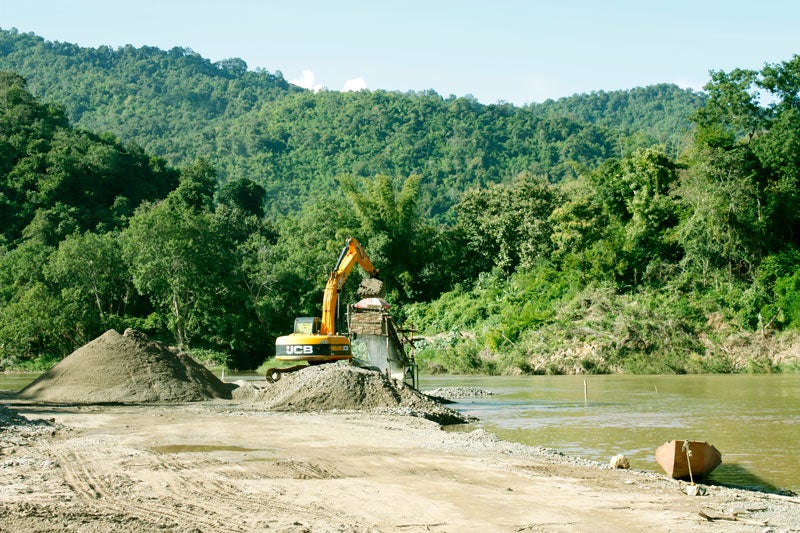 Abstract
Abstract
Sand is a key ingredient for urbanization, electronics, land-reclamation, coastal restoration and hydraulic fracturing. Sand mining has accelerated rapidly since 2000, and now rivals fossil fuels and biomass as the most exploited natural resource on earth. The demand for sand will inevitably increase as cities grow and per-capita consumption increases worldwide. However, there is currently no promising alternative to sand. Urgent, global action is necessary to prevent the looming “Tragedy of the Sand Commons”.
The Project
Our new article in Science details how sand extraction and increasing scarcity are closely interconnected to other global environmental and sustainability challenges, including maintaining biodiversity, preventing vector-borne diseases and natural hazards, water and food security, and population displacement. A grand challenge of the 21st century is to build a global governance strategy for sand to avert disasters, and science is part of the equation in that.
To hear Jodi Brandt talk about the project, listen to this clip from WBEZ Chicago, or click here for the audio clip on Boise State Public Radio.
Click here for the audio clip of the 20-minute live interview at BYU Radio.
Our work has also been featured in the World Economic Forum, on Joe Biden’s podcast, among many other media outlets.
The Team
Jodi Brandt, Boise State University
Contributors:
Aurora Torres, German Centre for Integrative Biodiversity Research
Kristen Lear, University of Georgia
Jianguo Liu, Michigan State University
Products
Torres, A., Brandt, J., Lear, K., Liu, J., 2017. A looming tragedy of the sand commons. Science 357, 970-97
Torres A., J. Brandt, K. Lear and J. Liu. (2016) “Global sand trade is paving the way for a tragedy of the sand commons.” American Geophysical Union (AGU), San Francisco.
Torres A., J. Brandt, and Lear K. (2016) “Telecouplings of Limited Resources: The case of sand.” International Association of Landscape Ecology (IALE), Asheville, NC.